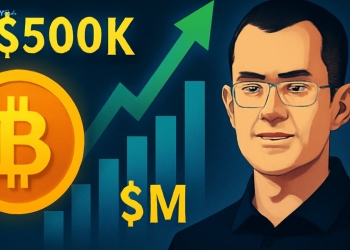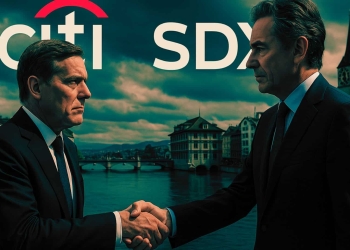Ethereum co-founder Vitalik Buterin, ‘Info Finance’, sees a future for prediction markets like Polymarket in advancing decentralized governance and information reliability through varied insight collection.
Buterin Envisions Broader Function for Prediction Platforms
In a recent online essay, Ethereum co-creator Vitalik Buterin shared his vision of prediction markets like Polymarket serving far more than simply betting on outcomes. Buterin proposes they act as powerful tools, gathering and spreading reliable data across domains from social media to governance using specially designed markets.
Buterin coined the term “info finance” to describe strategically shaping these markets to precisely obtain information from users, helping solve problems, especially within decentralized autonomous organizations. The markets would feature complex, diverse predictions eliciting multifaceted perspectives.
What is “Info Finance”?
Buterin defines “info finance” as starting with a specific data point wanted and then building a tailored market and collecting user viewpoints on that topic. In his words, info finance involves ” intentionally engineering a market to optimally extract that intelligence from participants” through varied, nuanced prediction design.
Buterin cited Polymarket’s accuracy in forecasting the recent U.S. election outcomes. The platform signalled a 60% likelihood of former president Donald Trump winning, with further predictions showing him taking control of all branches, available when most networks offered different accounts, demonstrating Polymarket’s potential as a knowledge-seeker resource.
Betting and Information Gathering
For Buterin, platforms like Polymarket serve a dual role: they enable users to place bets while simultaneously providing up-to-the-minute insights for those seeking to comprehend prevailing sentiment on crucial issues. Buterin himself employs Polymarket as a component of his “information-gathering workflow,” stating that examining Polymarket’s charts helps him stay better informed and more efficient.
Polymarket, consequently, is not merely for gamblers; it can function as an accessible wellspring of data. This understanding positions Polymarket and related platforms as potential replacements for conventional news coverage, particularly in scenarios where accuracy and objectivity are critical.
AI’s Potential Role in Info Finance
Looking ahead, Buterin envisions the long term future of info finance being significantly influenced by artificial intelligence. As AI becomes increasingly involved in prediction markets, Buterin believes these platforms could become even more proficient in furnishing pertinent understandings across different sectors.
AI could dissect patterns and trends more accurately, rendering info finance a go-to resource for those requiring trustworthy, evidence-driven insights.
Info Finance for DAOs
According to Buterin, one of the most promising applications of info finance is within DAOs. Numerous DAOs confront the issue of low participation in decision-making, leading to heavy reliance on delegation. While delegation can help address participation shortfalls, it also introduces risks of centralization and possible attacks.
Buterin suggests that DAOs could use prediction markets to forecast outcomes for smaller determinations, allowing associates to concentrate on more significant matters requiring a ballot. By integrating AI into this process, DAOs may be able to deal with “trust issues” and decentralize decision-making more proficiently.
Moreover, Buterin noted that with blockchain networks offering progressively affordable gas fees, info finance applications in DAOs are becoming more available and cost-effective.
Solving Trust Issues in Decentralized Governance
Ultimately, Buterin sees info finance as a potential solution to numerous challenging trust-related problems that frequently arise in decentralized governance models. He contends that this innovative approach could potentially enable transparent decision-making processes that are both efficient and equitable, particularly as decentralized organizations continue expanding rapidly in both size and complexity.
As prediction markets and cutting-edge artificial intelligence-powered analytical tools progress, they may play a pivotal role in shaping the innovative governance frameworks of the future, reducing dependency on centralized control while simultaneously improving access to accurate, informed perspectives critical to informed decision-making.
Buterin argues that info finance represents a transformational vision for organizational governance, offering a scalable, data-driven means of navigating challenges for structures founded on decentralized principles of consensus and cooperation over centralized mandates.
Stay connected with TurkishNY Radio by following us on Twitter and LinkedIn, and join our Telegram channel for more news.































































































![BitTorrent [New]](https://s2.coinmarketcap.com/static/img/coins/64x64/16086.png)
















